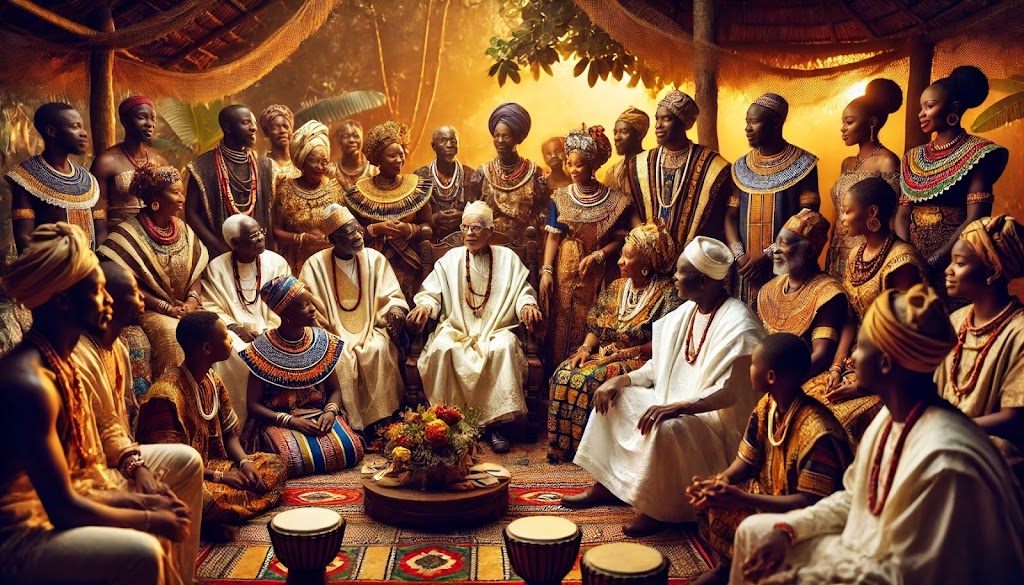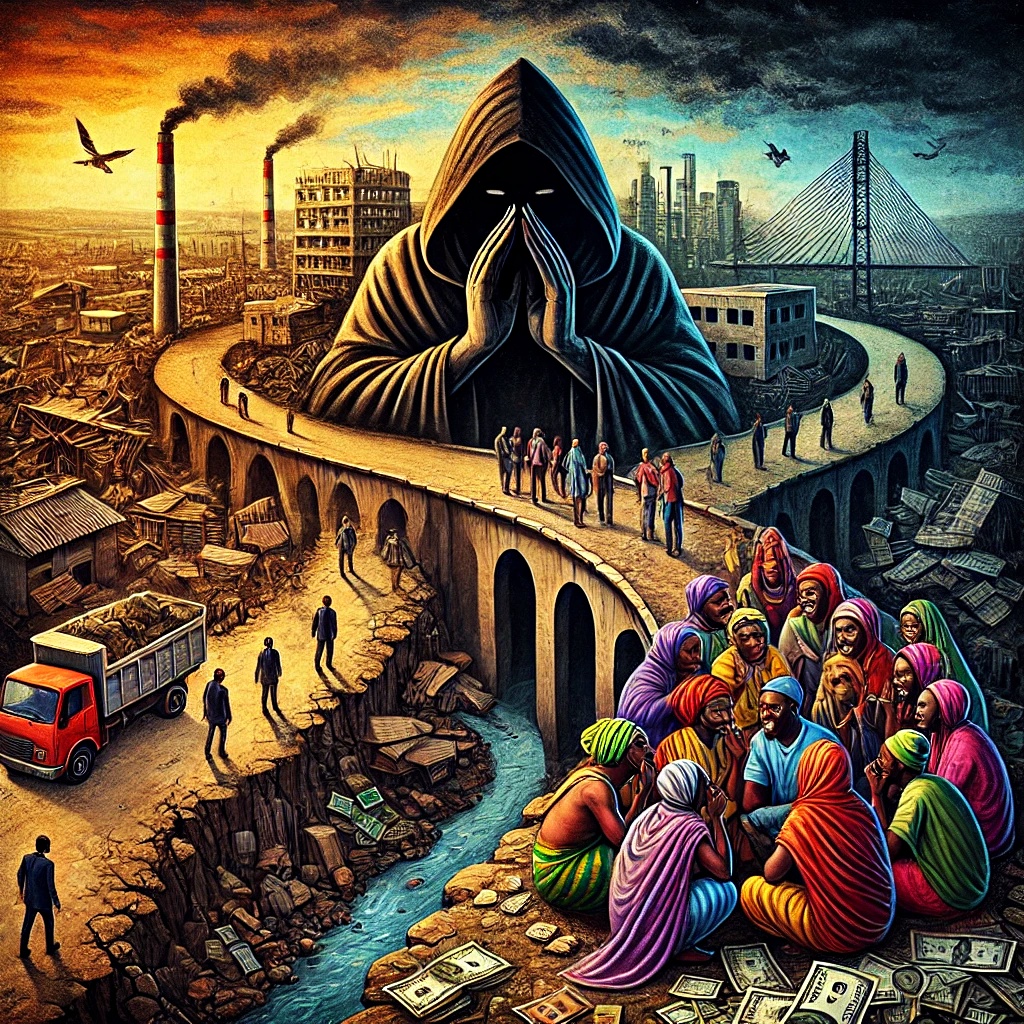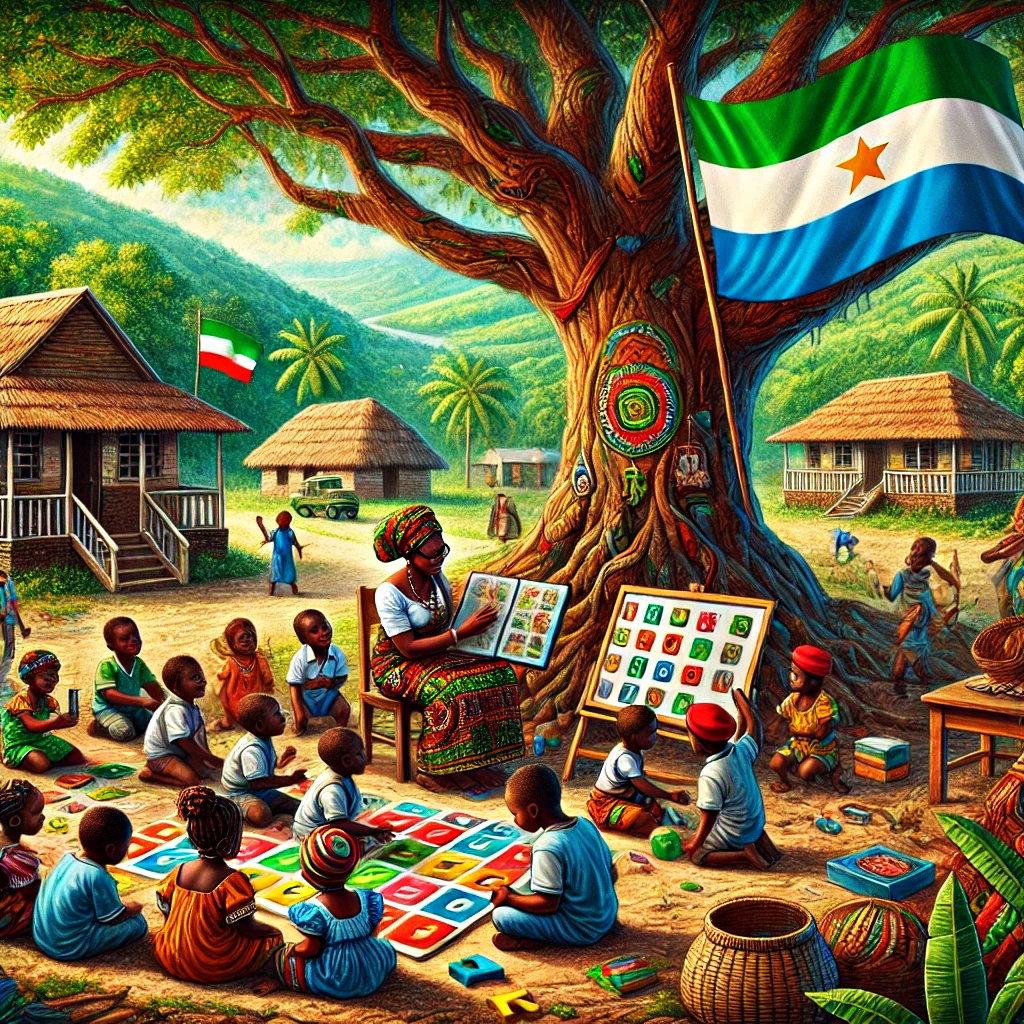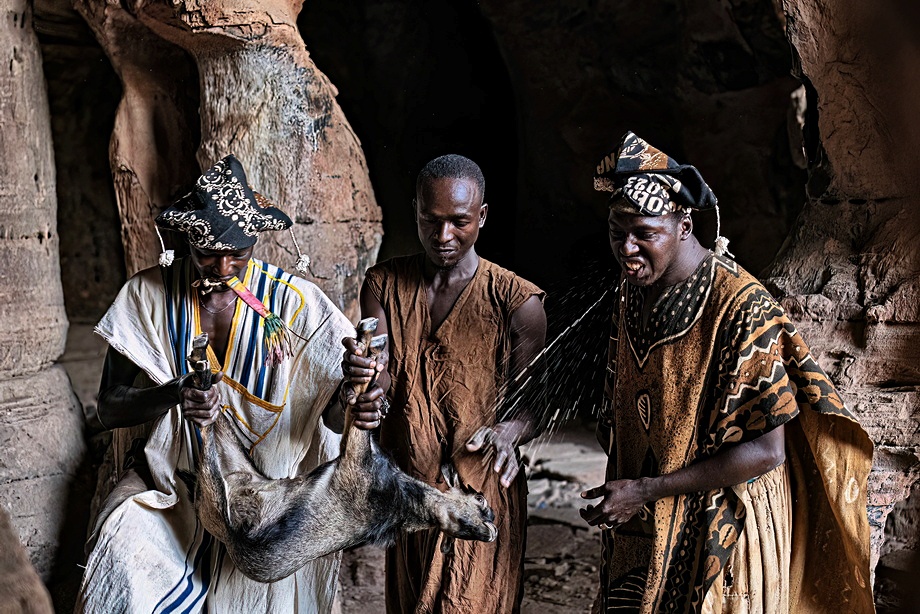The Class and Respect Issues Among the Africans

Class and respect dynamics within African societies and the African diaspora represent an intricate interplay of history, culture, and socio-economic structures. These issues are deeply rooted in pre-colonial traditions, colonial disruptions, and modern global influences. Understanding how class stratification and respect norms have evolved within African communities requires examining their historical context, cultural manifestations, and potential pathways forward. Historical Roots of Class and Respect in African Societies Historically, African societies have always exhibited forms of stratification, though these were largely fluid and communal. In many pre-colonial African cultures, respect was tied to age, wisdom, and communal contributions rather than material wealth or rigid class divisions. For example, elders were revered as custodians of knowledge and decision-makers within many African tribes, a value system that still persists in parts of the continent today (Mbiti, 1990). Colonialism profoundly disrupted these traditional systems. European powers imposed exploitative economic systems and hierarchical social orders that undermined indigenous values. The introduction of cash economies and land ownership laws created stark divides between the elite, often educated and European-aligned Africans, and the rest of the population. These colonial class systems, supported by divisive governance tactics, solidified a culture of economic disparity and social stratification (Rodney, 1972). Manifestations of Class and Respect Issues Today In contemporary African societies, class and respect issues are deeply intertwined. Economic inequality, a legacy of both colonial exploitation and neo-colonial structures, exacerbates class tensions. Wealth, often concentrated in urban centers or among those connected to political elites, has become a significant determinant of respect in many communities. This shift represents a departure from traditional respect systems based on character, age, or community contributions. Intra-community Dynamics Within families and local communities, respect is frequently tied to material success. For example, younger family members who achieve financial stability may be expected to command respect from elders, challenging traditional age-based hierarchies. This tension is particularly evident in the African diaspora, where western individualism sometimes clashes with African collectivist values. Gender and Intersectionality Gender plays a critical role in respect and class dynamics. Patriarchal traditions often confer respect based on male authority, while women’s contributions—whether economic or domestic—may be undervalued. However, modern movements advocating for gender equality are challenging these norms. For instance, women-led businesses and organizations are reshaping respect dynamics by emphasizing merit over tradition. Diaspora Perspectives The African diaspora adds another layer of complexity. Africans living outside the continent often face external class and racial hierarchies, which intersect with internal respect norms. For instance, African immigrants in Western countries may experience a loss of social status due to systemic racism, even as they navigate respect expectations within their own communities. The Cultural Significance of Respect Respect is a cornerstone of African cultures, deeply embedded in language, customs, and social interactions. In many African societies, greetings reflect hierarchical respect. For instance, in Yoruba culture, younger individuals prostrate or kneel to greet elders, symbolizing deference and honor (Fasoranti, 2018). Similarly, Zulu culture emphasizes the importance of ubuntu—a philosophy of mutual respect and interconnectedness. However, globalization and modernity are challenging these norms. The rise of individualism, consumerism, and digital cultures has diluted traditional respect systems. Social media, for example, often amplifies materialism, with wealthier individuals gaining admiration regardless of their ethical or communal contributions. Bridging Class Divides and Fostering Respect Addressing class and respect issues requires a multifaceted approach: 1. Education and Awareness: Promoting education about the historical roots of class and respect systems can help communities critically examine and reshape these dynamics. For example, integrating African philosophy and history into school curricula can foster a deeper appreciation for traditional values. 2. Economic Empowerment: Tackling economic disparities is essential for reducing class-based tensions. Programs that support entrepreneurship, especially among marginalized groups, can create pathways to equitable respect. 3. Cultural Revitalization: Encouraging a return to respect systems based on character and community contributions can counteract materialistic values. Cultural festivals, storytelling, and intergenerational dialogues are effective tools for this purpose. 4. Diaspora Engagement: Bridging gaps between African communities on the continent and in the diaspora can foster solidarity. Initiatives such as exchange programs, pan-African cultural events, and advocacy for racial justice can unite Africans globally. Conclusion The interplay of class and respect issues among African communities reflects a complex legacy of history, culture, and contemporary realities. While colonialism and globalization have reshaped traditional norms, there is an opportunity to reclaim and adapt these values to foster unity and equity. By addressing economic disparities, promoting cultural pride, and encouraging intergenerational dialogue, African societies can navigate these challenges and build a future where respect transcends class divides. References 1. Fasoranti, M. (2018). Yoruba Culture and Traditions: A Handbook. Ibadan University Press. 2. Mbiti, J. (1990). African Religions and Philosophy. Heinemann. 3. Rodney, W. (1972). How Europe Underdeveloped Africa. Bogle-L’Ouverture Publications. 4. Ndlovu-Gatsheni, S. J. (2013). Coloniality of Power in Postcolonial Africa: Myths of Decolonization. CODESRIA.
Falsehood,Deceptions , Lies and the Social Parameters informing Corruption and Development in Sierra Leone

Falsehoods, deceptions, lies, and the social parameters informing corruption significantly undermine stability and development in Sierra Leone. These factors erode public trust, weaken institutions, and impede socioeconomic progress. The following analysis explores these impacts, supported by scholarly references in APA style. Erosion of Trust and Institutional Integrity The prevalence of corruption in Sierra Leone has deep historical roots, contributing to the nation’s fragility and instability. Abdulai and Kubbe (2023) examine the diverse facets of corruption, noting that it permeates various aspects of society and governance, thereby hindering sustainable development efforts. Socio-Cultural Norms and Corruption Societal perceptions and traditional practices can either deter or enhance acts of corruption. Jamboria (2023) discusses how social thinking and perceptions in Sierra Leone influence corrupt behaviors, emphasizing the need for a consensus within society to curb corruption for continued stability and development. Impact on Socio-Economic Development Corruption adversely affects income distribution, investment, government budgets, and economic reforms. Saidu (2023) highlights that corruption increases inequality, decreases accountability, and produces rising frustration among citizens, thereby hindering socio-economic development in Sierra Leone. Undermining Governance and Service Delivery Corruption within local government structures leads to poor service delivery and erodes public confidence in governance. Koroma et al. (2023) highlight that corruption significantly undermines the efficiency of local administrations, leading to poor service delivery and eroding public confidence in governance structures. Conclusion Falsehoods, deceptions, lies, and the social parameters informing corruption have multifaceted adverse effects on Sierra Leone’s stability and development. They erode trust in institutions, exacerbate corruption, impede development efforts, undermine social cohesion, and weaken the rule of law. Addressing these challenges requires a concerted effort to promote transparency, strengthen institutional frameworks, and enhance media literacy among the populace. References Abdulai, E. S., & Kubbe, I. (2023). The Diverse Facets of Corruption in Sierra Leone. Springer. Springer Link Jamboria, M. B. J. (2023). Social Parameters of Corruption and Status in Sierra Leone: How Our Social Thinking and Perceptions Enhance or Deter Acts of Corruption. In E. S. Abdulai & I. Kubbe (Eds.), The Diverse Facets of Corruption in Sierra Leone (pp. 73-89). Springer. Springer Link Saidu, F. (2023). The Impact of Corruption on the Socio-Economic Development of Sierra Leone: A Case Study of Bo City. International Journal of Scientific Development and Research. GSSRR Koroma, S. M., Yusuf, M., Dauda, E., & Gando, J. G. T. (2023). The Effects of Corruption on Local Government Service Delivery in Sierra Leone: The Case of Bonthe District Council. International Journal of Scientific Development and Research.
The Historical and Recent Trauma Experienced by Sierra Leoneans: Behavioural Patterns Rooted in Survival Instincts

Sierra Leone, a nation rich in culture and natural resources, has endured centuries of trauma that shape its social fabric and behavioural patterns. From the precolonial period through colonialism, civil war, and the more recent Ebola epidemic, the people of Sierra Leone have faced profound challenges that have left psychological and societal scars. This article explores the historical and recent traumas endured by Sierra Leoneans and examines how these experiences manifest in behaviours deeply rooted in survival instincts. The analysis highlights the barriers these behaviours create to societal cohesion and development, underscoring the urgent need for holistic healing and nation-building. Historical Context of Trauma in Sierra Leone The roots of Sierra Leone’s trauma can be traced to the precolonial era, where inter-ethnic conflicts and the transatlantic slave trade disrupted societal cohesion. The slave trade, in particular, devastated communities as individuals were abducted, families torn apart, and traditional governance systems undermined (Thornton, 1998). This period of systemic violence introduced a legacy of fear, distrust, and fragmentation, as survival became paramount. Colonial rule further deepened societal fissures. The British colonizers imposed artificial boundaries, fostered ethnic divisions, and exploited the country’s resources, prioritizing their economic interests over the well-being of the indigenous population (Kup, 1975). The colonial administration’s “divide and rule” tactics exacerbated mistrust among ethnic groups, creating a hierarchy that privileged certain communities over others. These historical grievances remained unresolved, creating a fertile ground for future conflicts. Post-Colonial Struggles and the Civil War The post-independence period was marked by political instability and economic mismanagement, which culminated in a brutal civil war from 1991 to 2002. The war was fuelled by grievances over corruption, inequality, and exclusion from national resources (Richards, 1996). Over a decade of violence resulted in the deaths of thousands and the displacement of millions. Child soldiers were forcibly recruited, women were subjected to sexual violence, and entire communities were destroyed. The civil war left deep psychological scars. Survivors often suffered from post-traumatic stress disorder (PTSD), while communities became fragmented by mistrust and fear. Many individuals adopted survival-oriented behaviours, focusing on self-preservation in an environment where betrayal and violence were pervasive. These behavioural patterns, rooted in wartime experiences, continued to influence interpersonal and community relationships long after the conflict ended (Betancourt et al., 2010). Recent Trauma: The Ebola Epidemic In 2014, Sierra Leone faced another crisis with the outbreak of the Ebola virus, which claimed over 11,000 lives across West Africa. The epidemic exposed and exacerbated existing vulnerabilities in the country’s healthcare system and social structures. Fear of infection led to social isolation, further eroding trust within communities. The stigmatization of survivors and their families reinforced divisions, making reintegration challenging (Abramowitz et al., 2015). The Ebola crisis also highlighted systemic failures in governance and resource allocation. Many Sierra Leoneans lost faith in public institutions, perceiving them as ineffective or corrupt. This erosion of trust, coupled with the trauma of losing loved ones, reinforced survival-oriented behaviours characterized by fear, self-protection, and a focus on immediate needs. Behavioural Manifestations of Trauma Timidity and Reluctance to Take Risks The historical and recent traumas experienced by Sierra Leoneans have cultivated a widespread timidity and reluctance to take risks. Survival instincts, honed over generations, often discourage individuals from engaging in activities perceived as uncertain or threatening. For example, entrepreneurial ventures and collective action require a level of risk tolerance and trust in others that many Sierra Leoneans find difficult to muster. This hesitancy stifles innovation and economic progress, perpetuating cycles of poverty and stagnation. Distrust and Fragmentation Distrust is a pervasive legacy of Sierra Leone’s traumatic history. Whether stemming from colonial divisions, wartime betrayals, or the inadequacies of public institutions during the Ebola crisis, this lack of trust undermines collective action and community cohesion. Individuals often prioritize their immediate, personal needs over shared goals, leading to fragmented communities where collaboration is rare. This distrust also manifests in governance. Citizens are sceptical of political leaders, perceiving them as self-serving rather than serving the public interest. Such scepticism discourages civic engagement, weakening democratic institutions and perpetuating a cycle of ineffective governance and societal disillusionment (Fanthorpe, 2001). Blaming and Complaining as Coping Mechanisms Blaming and complaining have become coping mechanisms for unresolved trauma. These behaviours serve as outlets for expressing frustration and powerlessness in the face of systemic challenges. While these expressions are understandable, they often inhibit constructive problem-solving and reinforce a sense of helplessness. Instead of fostering resilience and collective effort, they contribute to a culture of inaction and stagnation. Barriers to Development and Societal Cohesion The behavioural patterns rooted in Sierra Leone’s traumatic history create significant barriers to societal cohesion and development. Distrust, fragmentation, and a focus on self-preservation inhibit the collective action necessary for addressing systemic challenges such as poverty, inequality, and inadequate infrastructure. Communities struggle to mobilize around shared goals, while governance remains weakened by a lack of public trust and civic participation. The cycle of mistrust and survival-oriented behaviour also perpetuates socioeconomic inequalities. Those with access to resources prioritize their immediate needs, often at the expense of long-term development. This focus on short-term gains undermines efforts to build sustainable systems and institutions, leaving the nation vulnerable to future crises. Breaking the Cycle: Toward Healing and Development Addressing the legacy of trauma in Sierra Leone requires a multifaceted approach that prioritizes healing, trust-building, and collective action. Several strategies can contribute to breaking the cycle: Psychosocial Support: Providing access to mental health services can help individuals and communities process trauma and develop resilience. Community-based healing initiatives, including storytelling and traditional practices, can foster reconciliation and trust. Strengthening Institutions: Rebuilding trust in public institutions requires transparency, accountability, and equitable resource distribution. Strengthening governance and delivering tangible benefits to citizens can restore faith in leadership and encourage civic engagement. Promoting Collective Action: Encouraging grassroots movements and community-driven development initiatives can foster collaboration and a sense of shared purpose. Programs that emphasize local ownership and participation can empower communities to address common challenges. Education and Capacity Building: Investing in
The Role of Education in Advancing Development in Sierra Leone: A Focus on Cultural Integration, Mother Tongue Instruction, and Deductive Learning

Education is more than a tool for personal growth; it is a catalyst for national transformation. In Sierra Leone, the integration of cultural education, mother tongue instruction, deductive learning, and compulsory education from kindergarten to junior high school has the potential to reshape the country’s trajectory. These approaches not only preserve the nation’s identity but also prepare its citizens to contribute meaningfully to development. With concerted efforts from all stakeholders, education will remain at the heart of Sierra Leone’s journey toward a prosperous and inclusive future. Education is widely regarded as the cornerstone of national development. In Sierra Leone, this holds particularly true, as the country strives to overcome socio-economic challenges while preserving its rich cultural heritage. Effective education is not just about literacy and numeracy; it also encompasses cultural education, the use of mother tongue as a medium of instruction, and innovative learning approaches such as deductive concept building. Moreover, compulsory education from kindergarten to junior high school is vital to creating a foundation for future growth and equity. This article explores the transformative power of these elements and their significance in shaping Sierra Leone’s educational landscape. Cultural Education Preserving Identity and Promoting Development Cultural education plays a pivotal role in strengthening national identity and fostering social cohesion. Sierra Leone is home to diverse ethnic groups, each with its own languages, traditions, and values. Integrating cultural education into the curriculum ensures that students develop an appreciation for their heritage while gaining respect for other cultures. Benefits of Cultural Education Cultural education helps students connect with their roots and fosters a sense of pride in their identity. This understanding promotes unity and reduces ethnic tensions, which have historically affected Sierra Leone’s social fabric. Moreover, cultural education prepares students to address local challenges using indigenous knowledge and practices. Practical Implementation Schools can integrate cultural education through storytelling, traditional music, arts, and local history lessons. These elements not only make learning engaging but also preserve cultural practices that might otherwise fade away. For instance, students could learn about Sierra Leone’s traditional governance systems or the role of local herbal medicine in community health. Link to Development Cultural education contributes to development by building a socially cohesive society. When students understand and value their heritage, they are more likely to contribute positively to their communities. This connection also has economic benefits, as cultural tourism and local crafts can serve as significant revenue sources for the country. Mother Tongue Instruction A Gateway to Effective Learning Research consistently shows that children learn best when taught in their first language. In Sierra Leone, where many children grow up speaking indigenous languages, the use of mother tongue as a medium of instruction is essential for early education. Cognitive and Emotional Benefits Mother tongue instruction enhances comprehension and cognitive development. Children grasp concepts more easily and develop critical thinking skills when lessons are delivered in a familiar language. Furthermore, learning in their mother tongue boosts students’ confidence and fosters a love for education. Bridging the Gap For many students in Sierra Leone, transitioning from a local language at home to English in school creates a learning barrier. By using mother tongue instruction in kindergarten and primary education, schools can bridge this gap, ensuring a smoother transition to English in higher grades. Practical Implementation Educational materials should be developed in local languages, and teachers must receive training to deliver lessons effectively in these languages. Bilingual education models, where the mother tongue is used alongside English, can be particularly effective. For example, a lesson on agriculture could begin in Krio or Mende before introducing English terms. Link to Development Mother tongue instruction supports equitable access to education. When children understand what they are taught, they are less likely to drop out, increasing overall literacy and numeracy rates. This inclusive approach helps Sierra Leone build a more skilled and capable workforce, driving national development. Deductive Concept Building Fostering Logical Thinking Deductive learning, which involves moving from general principles to specific applications, is a powerful approach to education. It encourages students to think critically and apply theoretical knowledge to practical problems. In Sierra Leone, integrating deductive learning into the curriculum can revolutionize how students approach their studies. Benefits of Deductive Learning Deductive learning builds analytical skills and prepares students to solve real-world problems. For example, a lesson on environmental conservation could begin with the principle that deforestation affects climate change, followed by specific examples of deforestation in Sierra Leone and ways to address it. Implementation in Schools Teachers should receive training in designing lessons that prioritize deduction. Subjects like mathematics, science, and social studies are particularly suited to this approach. For instance, in mathematics, students could learn the general rule for calculating the area of a shape before applying it to specific problems. Encouraging Inquiry-Based Learning Deductive learning aligns well with inquiry-based approaches, where students are encouraged to ask questions and seek answers. This method fosters curiosity and creativity, essential traits for future innovators and leaders. Link to Development By promoting logical thinking, deductive learning equips students to address Sierra Leone’s developmental challenges. Whether in engineering, public health, or governance, individuals trained in deductive reasoning are better equipped to devise solutions that benefit their communities. Compulsory Education A Foundation for Equality and Growth Compulsory education from kindergarten to junior high school is a cornerstone of Sierra Leone’s efforts to achieve universal education. Ensuring that every child receives at least nine years of formal education creates a strong foundation for national development. Combating Inequality Compulsory education ensures that all children, regardless of gender, socio-economic status, or location, have access to learning opportunities. This approach is particularly important for marginalized groups, such as girls in rural areas, who often face barriers to education. Early Childhood Education The inclusion of kindergarten in compulsory education is vital. Early childhood education lays the groundwork for future academic success, developing social, emotional, and cognitive skills that children need to thrive. Junior High School as a Transition Junior high school serves as a bridge between foundational education and
Show me your History;I’ll show you your greatness!

The Malinke connection of Sierra Leone The country called Sierra Leone today has a history with a very strong Malinke connection. ● After the collapse of the Mali Empire which had it’s western borders close to the northeast of Sierra Leone and in Guinea to the north, there was a dispersal of people which saw some moving to the south and the west. ● Also, some northern coastal people who lived on the eastern fringes of the Mali Empire and were between what is today Guinea-Bissau and Guinea Conakry and known as Baga-Susu-Themne, affected by this collapse moved south along the coast. ● The people coming from the eastern hinterlands who were led by a man known as Farama Tami, formed an alliance with the coastal people who had moved south from the north. ● This is how in 1450 a decentralised governance was established and called the KOYA KINGDOM. The Koya Kingdom, which extended from Cape Mount in Bong County in present-day Liberia to far north Kamsar in present-day Guinea, was in existence when the Portuguese, Pedro Da Cintra, who came to the shores of Freetown in 1462. ● The Koya Kingdom existed up to 1898 with Bai Bureh of Kasse as the last king. Governing such a large area from Cape Mount in Liberia to Northern Guinea was not an easy task. So there were several regencies with heads serving as local chiefs. Each of those heads, Known s Gbana, sought protection from the king who was known as Bai. ● Later with the advent of Islam some Islamic regent heads took the title of Alimamy. Others used Malinke linguistic titles like Ba.Some in the Mende speaking culture had Manse for men and Massah for women heads. ● In Freetown was a Malinke head whose title was Ba Demba from whom the present day street name PaDemba road was taken. ● The Koya Kingdom had a strong Malinke background with all ethnic groups living in present-day Sierra Leone being part of the decentralised governance system and having their ethnic heads known as Gbana after the Poro Society a nationwide Fraternity and training ground for the the boy in transition into manhood, naming tradition.So also is the Bondo sorority a school for teaching girls going from adolescence into womanhood. They were taught home economics, child care and other basic medicinal and herbal knowledge to take care of the home. ● As a result of her Malinke background, there are commonplace and person name in Sierra Leone, Liberia and Guinea today. These names and mostly Surnames are found in every area where there is a strong Malinke influence on culture. ● The Malinke influence is also reflected in the dress culture of the people to a very large extent. The country the cloth is woven by the Mendes, the Ronko dress woven by the Limbas, the Gara textile produced largely in West Africa and with which dresses are sown are all products originating from Malinke cultural dress modes. ● In music instruments like the drum called Tamballay/Tabulay, the Xylophone/Balanji instrument and wind instruments; String instruments like the Kora found in varied designs in the different ethnic groups in Sierra Leone as in other parts of West Africa are all similar in all the ethnic groups and have a common origin from the Malinke culture. ● Another common indicator of the strong Malinke connections are the common surnames across ethnic groups. Names like Kamara, Koroma, Conteh, Sesay, Kallon, Kanneh, Konneh, Turay/Troure, Fofanah, Tarawalie, Senesie are found across ethnic groups and are also common in most parts of Manding culture west Africa or Africa west of the Ashanti and other cultures of La Cote D’Ivoire, Ghana and Nigeria. ● Further, there is a place name that is common in every district of Sierra Leone called Sumbuya. Sumbuya is a Malinke word meaning a place that provides a source of livelihood or place of respite. · The Confederation we today called Mano River Union is the approximate equivalent of the Koya Kingdom as that governance entity had a similar but mostly coastal areal size. The Mane, the Decline of Mali, and Mandinka Expansion towards the South Windward Coast (link to a downloadable page) (To be continued)



